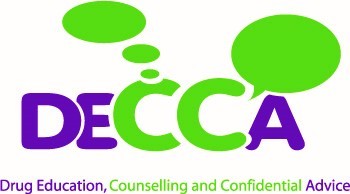
Targeted Group Work
by DECCA
- Address
-
Sandwell Children's Trust, Wellman Building, Dudley Road
Oldbury - Contact
-
Decca
Decca_Team@sandwellchildrenstrust
0121 569 2201 / 07500 785889
https://www.ourguideto.co.uk/
- Ages
- 3, 4, 5, 6, 7, 8, 9, 10, 11, 12, 13, 14, 15, 16, 17, 18
- Gender
- All
Decca delivers harm reduction education and prevention work, using a structured model, within non-mainstream settings such as Sandwell Community Schools (SCS)/Pupil Referral Units (PRU’s), Youth Offending Service (YOS) Children in Care (CIC) services, special educational needs schools, alternative training providers and any non-mainstream organisations, through direct delivery, as part of a comprehensive Proactive Outreach programme. Through this approach DECCA access some of the most vulnerable and at-risk young people in the borough, and work with them for a minimum of two sessions, with that number being flexible depending on the young people themselves. They may not be involved with mainstream education and may be classed under official statistics as Not in Education, Employment or training (NEET), but through linking with a wider range of statutory and community partners DECCA are able to engage them. This work enables earlier intervention and referrals are generated, into treatment, from sessions that are run through Outreach. Interventions can then be delivered earlier and thus increase the chances of a successful recovery. The educational pieces of work that DECCA has produced have been recognised by the Department of Health as models of good practice, in 2007 and 2010, for both Substance Misuse and Alcohol. In 2016 the schemes of work used for Proactive Outreach became accredited through the Feeling Safe Foundation and as such are endorsed by them as following the Protective Behaviours approach to Building Resilience. Project 12 (P12), a programme led on by DECCA, has been recognised by Ofsted in two different inspections, one in a mainstream school and the other for SCS/PRU, as a positive addition to work carried out that leads to the better safeguarding of young people.
Opening hours
| Morning | Afternoon | Evening | |
|---|---|---|---|
| Monday | |||
| Tuesday | |||
| Wednesday | |||
| Thursday | |||
| Friday | |||
| Saturday | |||
| Sunday |
- Accessibility details
- On a bespoke basis - we seek outside expertise to enable them to access
- Staff qualifications
- As appropriate to the service
- Additional notes
- Missing
- Categories
- EXPLOITATION , PERSONAL, SCHOOL LIFE/BEHAVIOUR AND PEER RELATIONSHIPS
